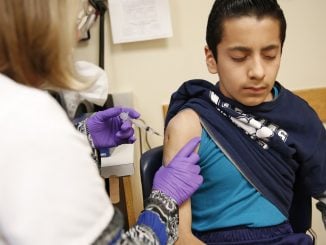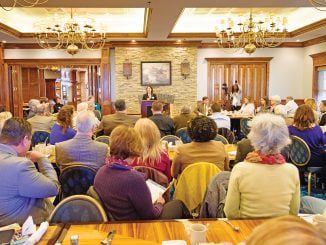RALEIGH — A survey sent to schools across the state on expanding the current COVID-19 testing pilot program shows limited and mixed results.
According to data obtained by North State Journal, schools were asked a number of questions including their district location, student-population-size range and questions about the pilot program.
The data included responses from 228 school entities from public district schools, private schools and charter schools. The majority of respondents were charter schools (57) and private schools (121). Around 40 respondents identified themselves as a district local education agency (LEA) and 10 had no identifier listed.
The N.C. Department of Health and Human Services (NCDHHS) first rolled out a COVID-19 testing pilot program for K-12 schools in December of 2020. At that time, at least 16 districts and 10 charter schools were included in the list of approved participants.
An expansion of the program was announced by NCDHHS at the beginning of March of this year. That same month, Dr. Aditi Mallick, director of the COVID-19 Operations Center, updated the State Board of Education, noting that some 53,000 tests had been sent to 200 schools across 17 districts, and 11 charter schools engaged in the pilot program that began in late 2020.
Schools were asked whether or not they were interested in using a COVID-19 screening program for the coming school year. Choices of answers included, “yes,” “no” and “yes, but It depends on the type of test.” For that question, 47 were “yes” responses and 67 of the respondents answered “yes, but it depends on the type of test.” The vast majority, 114, said “no.”
Schools were also asked if their school or school district would have interest in being “a pilot site for a NCDHHS end-to-end vendor testing program prior to the fall.” Only 57 expressed interest in becoming a pilot site and an overwhelming majority, 172, said “no.”
According to the responses, the main reasons given for not having a testing pilot program was a “lack of interest or concern from families/students/teachers,” as well as concerns about testing performance and staffing support.
Districts were asked if they already were or intended to “support vaccine access” for their students. Those responding “no” were in the majority with 148. Around 80 responded “yes” and one respondent did not answer the question.
The COVID-19 testing pilot will be continuing as students head back to the classroom this fall and department spokeswoman Catie Armstrong said that the state hopes to expand the pilot to “as many schools as possible in the future.”
NCDHHS announced on Aug. 5 that MAKO Medical and Concentric by Ginkgo had been picked to run the testing services in schools.
According to Armstrong, districts are not expected to keep test results in a student’s file but they are required to report all positive results to local health departments as well as sending all results to NCDHHS.
When asked if schools will become de facto testing sites for K-12 students and staff, Armstrong said that
under the pilot program, schools and districts have made their own decisions about site locations for testing K-12 students and staff.
“In the current pilot, students and staff are only be tested if they have symptoms or are found to be close contacts, not for screening purposes,” Armstrong said in an email. She also indicated testing of students is not mandatory and testing of staff will not be required on a regular basis. Also, she confirmed parental or guardian consent is required before a student is tested.
Armstrong referred back to CDC guidance when asked whether or not this type of widespread screening might mean masks will no longer be required in K-12 schools.
“The CDC’s updated guidance continues to recommend that unvaccinated persons continue to wear masks in schools as well as other settings that serve children, many of whom are not yet eligible to be vaccinated, including childcare and camps,” wrote Armstrong. “We will continue to look at the data to guide our decisions, and are currently evaluating the CDC’s updated guidance.”
Armstrong’s responses were received prior to Gov. Roy Cooper’s announcement of updates to NCDHHS’ school guidance toolkit.
On July 21, Cooper and NCDHHS Secretary Mandy Cohen announced the StrongSchools NC Toolkit had been revised to conform with current CDC guidance that says K-12 students who are unvaccinated “should” wear a mask but are not required to. Cooper also allowed the statewide mask mandate to expire at the end of July.
The toolkit language on masks goes beyond what the CDC suggests, by adding “require” for sections on transportation and for certain age groups, stating that “All schools should: Require all children and staff in schools K-8th grade to wear face coverings consistently when indoors.”
The inclusion of the term “require” in the toolkit arguably leaves the door open for districts to require K-8 students to wear masks, which could pit already-frustrated parents against local school boards.
In advance of Cooper’s school guidance announcement, five districts had already passed motions or resolutions making masks optional for the upcoming school year. So far, around 56 of the state’s 115 districts have made masks optional for 2021-22. Another 41 districts are requiring masks and over a dozen school boards still have yet to decide.
In the latest update for the StrongSchoolNC toolkit which provides guidance for the state’s K-12 schools, NCDHHS changed quarantining guidance. The change was presented by NCDHHS Deputy Secretary Susan Gale Perry to the State Board of Education at its scheduled August meeting.
The change states that a student won’t need to quarantine if both students used face masks correctly and other prevention strategies were in place such as physical distancing and increased ventilation. This change does not apply to teachers, staff, or other adults in an indoor classroom setting.



